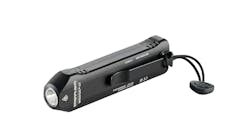The row over the new automotive air-conditioning refrigerant developed to comply with a new European Commission directive by Honeywell and DuPont has entered into another chapter after Opel declared it regards it as safe.
According to a Reuters report in response to tests carried by Daimler that found HFO-1234yf to be highly flammable, Opel opted to carry out its own tests on the substance by crash testing an example of its Mokka SUV-B model containing the refrigerant and found no evidence that the substance could catch fire and release toxic fumes. Opel claimed that it had conducted the test together with the independent testing agency TÜV Rheinland, and that the refrigerant had failed to ignite from the system after impact.
Significance: Daimler's Mercedes-Benz and Volkswagen (VW) are developing a new range of CO2-based refrigerants as they have publicly stated that they believe that HFO-1234yf is highly flammable and therefore unsuitable in automotive applications. Honeywell has countered this by saying the substance has been tested extensively and that it is no more flammable than many other materials and liquids that can be found under the bonnet of a car. Honeywell and DuPont developed the refrigerant specifically for a new European Commission directive that bans CO2-based air-conditioning as they are a disproportionately high contributor of greenhouse gas emissions, and HFO-1234yf is the only refrigerant which complies. EU commissioners have reiterated that OEMs that do not comply to the directive will be fined.
Opel began installing 1234yf-based systems in its Mokka model at the start of the year, but Daimler is violating the EU directive by continuing exclusively to use the non-flammable R134a. In a statement Opel research and development (R&D) head Michael Ableson said "no alternative in the near future to refrigerant 1234yf." He added, "Other possibilities such as CO2-based refrigerants are still in the development stage and are years away from entering the market," he said in the statement.

